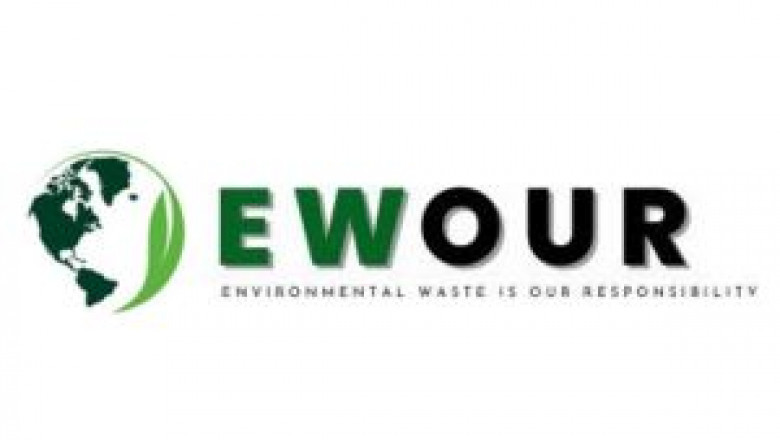views
India is one of the largest producers of electronic waste (e-waste) globally, owing to rapid technological advancements and growing consumer demand for electronic products. The country’s legal framework for E Waste Management Registration is designed to promote environmental sustainability, resource conservation, and producer responsibility. At the heart of this framework lies the concept of Extended Producer Responsibility (EPR), which mandates proper collection, recycling, and disposal of e-waste.
This article delves into the regulatory and legal landscape governing E-Waste Management Registration in India, explaining the laws, authorities, and compliance requirements associated with EPR Certificate for E-Waste and EPR Registration in India.
Understanding E-Waste in the Indian Context
Electronic waste includes discarded electrical and electronic equipment such as mobile phones, computers, televisions, refrigerators, and more. These contain hazardous substances like lead, mercury, and cadmium that can harm both human health and the environment if not handled correctly.
India generated over 1.7 million tonnes of e-waste in recent years, a number that continues to rise. To manage this effectively, the government introduced a structured legal framework under the Environment (Protection) Act, 1986.
Key Regulations Governing E-Waste Management
E-Waste (Management) Rules, 2016
The E-Waste (Management) Rules, 2016, notified by the Ministry of Environment, Forest and Climate Change (MoEF&CC), form the backbone of E-Waste Management Registration in India. These rules emphasize the following:
-
Mandatory EPR Registration for E-Waste for producers, importers, and brand owners.
-
Compulsory channelization of e-waste through authorized dismantlers and recyclers.
-
Clear labeling and product information for consumers.
-
Setup of collection mechanisms like drop-off centers and take-back systems.
Amendments to the Rules (2018 & 2022)
The rules were further amended in 2018 and restructured significantly in 2022 to streamline the process of EPR Certificate in India. The amendments include:
-
An online portal for streamlined EPR Registration in India through the Central Pollution Control Board (CPCB).
-
Quarterly reporting of e-waste collection and disposal.
-
Introduction of EPR credits and compliance mechanisms for better traceability.
Authorities Involved in EPR and E-Waste Regulation
Central Pollution Control Board (CPCB)
The CPCB oversees the entire process of EPR Certificate for E-Waste issuance and monitoring. It operates the official EPR portal and regulates compliance, reporting, and enforcement actions.
State Pollution Control Boards (SPCBs)
SPCBs are responsible for granting operational authorizations to recyclers and dismantlers and monitoring compliance at the state level.
Ministry of Environment, Forest and Climate Change (MoEF&CC)
The MoEF&CC frames the national policy, amends rules, and ensures coordination between stakeholders to implement EPR Registration in India effectively.
Who is Required to Register?
Under the current legal framework, the following entities must obtain E-Waste Management Registration in India:
-
Producers: Manufacturers or importers of electrical and electronic equipment.
-
Importers and Brand Owners: Those who import or sell electronic goods under their label.
-
Refurbishers and Dismantlers: Entities involved in the refurbishing or dismantling of e-waste.
-
Recyclers: Those engaged in the final processing and extraction of precious metals and materials.
All these entities must apply for an EPR Certificate in India and adhere to collection targets, reporting requirements, and disposal norms.
Importance of EPR Registration for E-Waste
-
Legal Compliance: Failure to register and comply with EPR norms can lead to severe penalties and license cancellations.
-
Environmental Protection: Ensures responsible disposal and reduces environmental degradation caused by hazardous substances.
-
Sustainability and CSR: Aligns businesses with national goals such as Swachh Bharat and Sustainable Development Goals (SDGs).
-
Brand Value and Market Access: Demonstrating compliance boosts reputation and facilitates easier entry into global supply chains.
Ewour’s Role in Legal E-Waste Compliance
At Ewour Waste Management, we offer expert services for EPR Registration for E-Waste in India. Our team navigates the complex legal framework to help producers, importers, and recyclers meet their regulatory obligations with ease. From document preparation to filing with CPCB, Ewour ensures that your EPR Certificate for E-Waste is obtained in a hassle-free, compliant manner.
We also promote eco-friendly recycling practices and align our operations with national and international environmental policies.
Final Thoughts
The legal framework behind E-Waste Management Registration in India is a critical step towards safeguarding the environment and promoting responsible production and consumption. If you are involved in the manufacturing, import, or sale of electronic goods, obtaining an EPR Certificate in India is not optional—it is essential.
Need help navigating e-waste regulations? Contact Ewour Waste Management today for expert guidance on EPR compliance.














Comments
0 comment